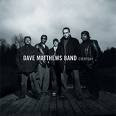However, I think there is a greater downside to the tracking. I heard many comments from some of the higher level kids directed towards the kids tracked at the lower levels. They make fun of them for being at a lower reading level. This does terrible damage to the lower kid's self-esteem. This feeling that the children get from the lack of self esteem isn't the only downside that I see. I see kids in the lower levels just stay at the levels they are at. They are not challenging themselves and more importantly, the teacher is not challenging them. The lower level kids are getting the short end of the stick in the process of tracking I believe. As much as there are positives in tracking, I believe the downsides that I've seen and Oakes talks about outweigh the positives.
Tuesday, May 4, 2010
Random Post #2
I just wanted to talk a little bit about the things I saw in my classroom on my last visit. I know we talked about tracking in class recently with the Oakes article and I've seen some of the effects of it in my classroom. On the positive side, like Oakes says, the teacher in my class is helped out immensely by having different types of tracking groups and levels to be more organized in educating her students best. She can read at different levels and gear different sorts of questions and assignments to her kids when she spends time with these separated groups.
Sunday, May 2, 2010
Social Justice Event
The social justice event that I went to was a lecture in the Adams Library on Wednesday about second wave feminism and the treatment of women rape victims. It was run by the history department. The lady who did the talking did most of her studies on the Chicago area, but made conclusions on her studies about the behavior of the country as a whole. She talked about how females were dissuaded by the maleness of the police force, courtroom, etc from reporting and going through with telling people of rapes. She also talked about how the rape victims were not even primary witnesses in the criminal cases, they were secondary witnesses. You would think the person who was victimized by the crime would be a primary witness in the case. However, she said there were advancements being made during the time period of her studies ( 60's-70's and later). She stated that hotlines were created to help reporting rapes easier and make it easier for women to talk about their problems with someone. Also, medical treatment improved. Rape victims were given separate rooms from other patients and were given an individual nurse who was to stay with her the whole time. Most of the other stuff was pretty boring and I could not keep my attention, but here are some connections I made with previous readings we have gone over.
Connections:
Delpit:
-The lecturer stated that "women's voices were moved to the background"
- This is just like when Delpit talks about the people of color's voice in the education process. The people of color know how to educate their children the best way, however, the people in power are the ones who are making rules and the ways of education. Just like the women rape victims. You would think that women's ideas and thoughts on the process of caring for rape victims would be heard and ultimately listened to.
Johnson:
- "Maleness, is the primary root of female oppression"
- We talked about this while reading Johnson, but it was about whiteness in that case. For some group to be oppressed, there has to be another group that is benefiting and therefore oppressing that other group. In Johnson's example, it was whiteness that was the oppressing factor to non white people. In this case, maleness is the oppressing factor for females.
Separate but Equal?
- The lecturer talked about the separate examining rooms that the rape victims got and the special treatment they received.
- I guess this could be equated to separate and equal, because the rape victims need special treatment and care compared to other patients. I guess it's sort of like the whole glasses thing we talked about in class. Is it fair for the people who have glasses to have to take them off so everything is equal? No, so it isn't fair for women rape victims to receive no special care and help in the hospital.
I had to sort of dig deep, but those are my connections to the texts we read in class.
Subscribe to:
Posts (Atom)
